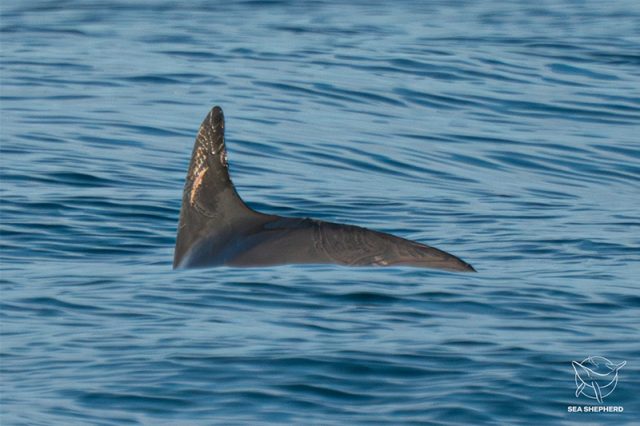
MEXICO CITY— The world’s rarest marine mammal, the vaquita porpoise, does not appear to have suffered a drop in its population since October 2021, according to new research published on Wednesday by Sea Shepherd, a non-governmental organization working to help prevent their extinction.
The critically endangered vaquita, native to Mexico’s Gulf of California, has been imperiled by illegal fishing, putting Mexico’s government under pressure to crack down on the practice. Biologists estimated that some 20 or fewer vaquitas were left in 2018, and previously warned more die each year in nets than are born.
However, Sea Shepherd’s latest surveillance mission said they spotted around a dozen healthy looking vaquitas, including calves, “roughly the same” estimate as in October 2021, when the last survey was conducted.
The group’s new report also said data showed over a 90% drop in the number of fishing boats operating where the vaquita live.
“Seeing healthy vaquitas feeding undisturbed makes us optimistic that the species is not bound to continue its decline toward extinction as long as conservation measures can continue,” the report said.
The stark decline in boat activity was the “most encouraging news ever of human intervention to save vaquitas,” it said, attributing the drop to improved coordination by the Mexican navy in the so-called Zero Tolerance Area (ZTA).
In a news conference to present the report, navy official Captain Juan Luis Miraflores said 193 concrete blocks had been placed within a mile of each other in the ZTA, proving a successful counter to trawling.
It follows a partnership between Sea Shepherd and official bodies, including Mexico’s navy, to boost the vaquita conservation and information-sharing about illegal fishing.
Lead researcher Barbara Taylor said the navy should be proud of the initiatives it has undertaken, calling them a “huge success,” but that conservation efforts were still imperative.
“This is a time to rejoice but not to rest. We stopped the bleeding but to recover vaquitas needs more,” she told the news conference.
She also urged introduction of policies to help support the livelihoods in locals to allow them to move away from vaquita-killing fishing.
In late May, the U.S. interior secretary declared that Mexico has failed to halt the illegal wildlife trade threatening the vaquita, opening the path for a possible trade embargo.
—Reporting by Carolina Pulice and Aida Pelaez-Ferdnandez; Writing by Isabel Woodford; Editing by Marguerita Choy and Bill Berkrot









